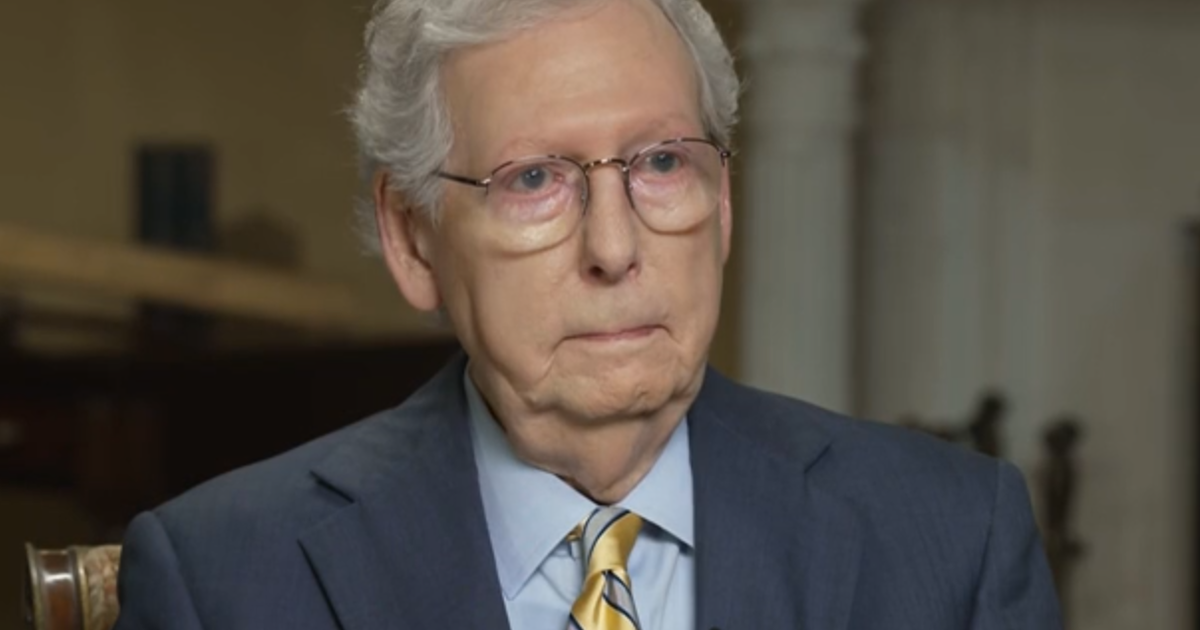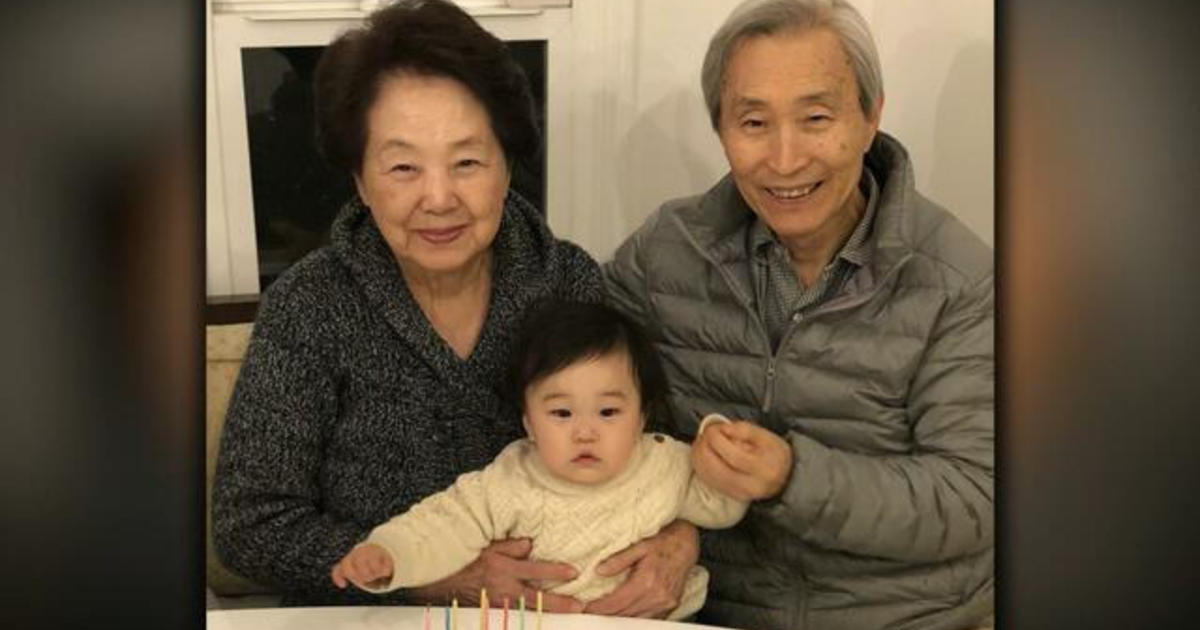Transcript: Dr. Scott Gottlieb on "Face the Nation", October 10, 2021
The following is a transcript of an interview with former FDA Commissioner Dr. Scott Gottlieb that aired Sunday, October 10, 2021, on "Face the Nation."
MARGARET BRENNAN: Welcome back to FACE THE NATION. We go now to former FDA commissioner Dr. Scott Gottlieb, who also sits on the board of Pfizer and is the author of Uncontrolled Spread: Why COVID 19 Crushed US and How We Can Defeat the Next Pandemic. Doctor, Pfizer applied for emergency approval for children ages five to 11 to be able to get a vaccine. Is it reasonable to assume that by Thanksgiving, we could see children fully vaccinated?
DOCTOR SCOTT GOTTLIEB: I think that's certainly reasonable in terms of when this would be available. FDA is meeting Oct. 26- their advisory committee to discuss this application. Assuming that they authorize the use of the vaccine, CDC's Advisory Committee is going to meet on Nov. 2 and 3 and make a final decision about who should be eligible for the vaccine. And assuming both of those events go well, and you get a positive recommendation out of both the FDA and CDC, this should be available almost immediately after the CDC makes a final recommendation and be available in pharmacies and perhaps pediatricians offices as well. Pfizer plans to ship this vaccine in smaller vials and also smaller trays that could make it more accessible to more pediatric pediatric practices.
MARGARET BRENNAN: That's interesting, so perhaps more readily available than when the adults went through the process. According to the poll that we started our program with today, more than a third of parents say they will vaccinate their five to 11 year olds right away. A quarter of them will wait and see. I'm wondering what that says to you and what you would be looking for in the language from the CDC when they explain this to the public?
DR. GOTTLIEB: Yeah, look, I was actually encouraged by the results of that survey, there's a lot of parents like me that as soon as the vaccines available for their children are going to go out and get their kids vaccinated, that see the benefits of vaccination. There's a lot of- parents that still have a lot of questions around vaccination. I think for them, they should have a conversation with their pediatrician to try to get comfortable with the idea of vaccinating kids. We now have the opportunity by the availability of this vaccine to more fully vanquish this virus and protect a broader swath of the population in terms of what CDC is likely to do. I think the question is whether or not they're going to say that this vaccine should be used in kids ages five to 11 or may be used in kids ages five to 11 and then perhaps innumerate kids who are at higher risk for whom a strong consideration should be made about deploying the vaccine. I think CDC is likely to take a very cautious approach in children ages five to 11, in part because they're at less risk from COVID, in part because this is a new vaccine. We're still collecting data about it and it's a novel virus. And so, there's still some things we don't know. But I think there's a lot of information available. It certainly makes me confident about vaccinating my kids. And for those parents are still have a lot of questions. I would urge them to have a discussion with their pediatrician about the pros and cons of vaccination.
MARGARET BRENNAN: And this is a third of the size of the dose given to adults. Correct?
DR. GOTTLIEB: That's right. And for younger kids, kids ages six months to four years, which is still in development, it's going to be even a smaller dose, one tenth the dose that's used in adults.
MARGARET BRENNAN: So, parents of young kids like me will still have to wait. That's an update on the timeline there that you just gave us. Is it going to be more difficult to get approval for the smaller- the smallest of children for the infants? I mean, are we looking really far down the line?
DR. GOTTLIEB: Not really far down the line, I think there is some indication based on the experience with this vaccine where FDA asked for additional information, as well as some feedback that Pfizer has gotten from the agency, that the clinical trials in kids ages six months to two years and then two years to four years. So, it's two different trials, could be a little bit larger and a little bit longer in terms of the follow up period that's required and that could push it into 2022. Previously, we had talked about trying to have that data available before the end of this year, which could have prompted an authorization, perhaps by the end of the year, at least in kids ages two to four. I think it's more likely that it slips into the first quarter of next year, at the very least, but not too far into next year. Ultimately, this is going to be discussed at the advisory committee that FDA has on the 26th. So, a final recommendation about how large those trials need to be and how long the follow up period needs to be is going to be made at that point. I think, look, the agency has been moving cautiously here, but you know, with speed recognizing the importance of getting a vaccine available for children. I think ultimately, if we can derive more information, it gives more people confidence about using this vaccine and puts CDC in a better position to make a more confident recommendation. Ultimately, the public health is going to be served better by that, even if it means that it ends up slipping a month or two. So that might be the outcome here.
MARGARET BRENNAN: So, you've said previously on this program that eventually you do think that the COVID vaccine will be added to the- the list of requirements for kids to walk into the school room. The CDC puts it together, governors are the ones who mandate what your children need to be vaccinated with. When do you expect it to be mandated for elementary school children?
DR. GOTTLIEB: Yeah, look, I think it's a very long way off. Certainly, CDC is going to look at children ages 12 to 17 differently than five to 11 and the older kids, the high school kids and middle school kids, do seem to get into trouble more with COVID. It's harder to control in those settings, so that's going to be considered separately. But even that's, I think, a multi-year effort. I don't think that it's going to happen any time soon. CDC is going to want to see the post-pandemic experience, how much virus is going to be circulating after the pandemic and how much of a risk it poses to children. They're also going to want to collect a lot more long-term data in kids. And so, you know, 12 to 17 could be a couple of years away, perhaps a little longer. I think five to 11 is even longer than that. You're going to want to get more experience in those children. And that's barring anything unexpected. I mean, if we do get a new variant and this becomes very hard to control in children, if we get something that is causing more problems in kids, you could see an earlier decision. But given our current trajectory, where we are, that we are starting to get control of this virus, I think that CDC is going to act very cautiously. And just final point on this, if you look historically at past vaccines, the time between when they're licensed and when CDC incorporates them into the childhood immunization schedule is a multi-year effort. HPV was first licensed in 2006 and wasn't recommended until 2016. Hepatitis A was first licensed in 1995 and wasn't recommended until 2000. So, you've seen it be a multi-year effort between when these things get licensed initially and when CDC ultimately puts them into the recommended schedule for children.
MARGARET BRENNAN: So, you told us that the youngest of kids won't likely have a vaccine by the time we gather at Christmas time. Something that caught my eye this week was the Biden administration's announcement. A billion dollars that they're announcing in at home testing. Is that the practical plan for people over the next few weeks? Do they need to go out and buy at-home tests to know whether they can get together with their loved ones?
DR. GOTTLIEB: Yeah, I do think so. Look, I think every household should have a supply of at-home tests, that's what they're doing in the UK and for people who are priced out of the market, these tests are not cheap. I think the government can be doing a lot more to subsidize the availability of those tests, perhaps distributing them, for example, in the Medicaid program. It looks to be what the Biden administration is aiming to do. I think when you're gathering around the holidays, you have to assess the circumstances. If you have younger kids who are unvaccinated with older relatives who are vaccinated, but still could be vulnerable from a breakthrough infection, using testing to try to protect that setting, I think, makes a lot of sense. That's certainly what I try to do.
MARGARET BRENNAN: All right. Dr. Gottlieb, thank you for the advice. We'll be right back.



